Past Voss Fellows
2019-2020 Fellows
-
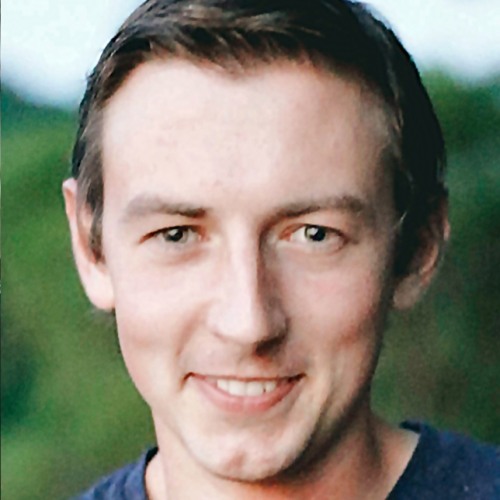
Sawyer J Balint '20
ScB Environmental Science – Air, Climate & Energy trackThesis Advisor Meredith HastingsAnthropogenic changes to nutrient cycling have dramatically altered ecosystems across the globe, particularly in coastal estuaries such as Narragansett Bay, RI where nitrogen (N) limits primary production. Atmospheric deposition of N into the Bay (through precipitation, direct diffusion, and the settling of particulates) remains poorly quantified, and recent work has found a relationship between precipitation amount and hypoxic events that implies N cycling in the Bay is not fully understood.
To better understand the biological implications of this uncertain flux, I first analyzed high time resolution buoy data collected by the Narragansett Bay Commission and precipitation records to identify multi-day correlations between precipitation events and chlorophyll abundance. I then sampled macroalgae (Ulva spp.) in the Providence River and northern Narragansett Bay at ~48 hour time resolution to investigate if the d15N and C:N ratio of macroalgae changes in response to precipitation.
Finally, I am collaborating on a project to quantify the flux of gaseous NH3 and particulate NH4+ between Narragansett Bay and the atmosphere through the use of acid-coated filters and a Relaxed Eddy Accumulation system.
-
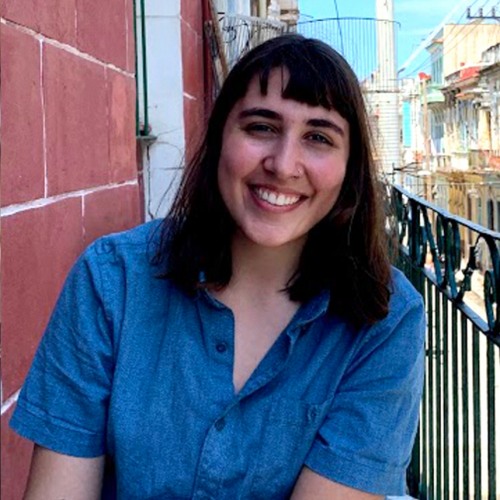
Nikayla K Ficano '20
ScB Environmental Science – Land, Water & Food Security trackThesis Advisor Stephen PorderGaps in the canopies of tropical rainforests present interesting ecological dynamics by altering light levels, soil humidity, and a number of other biotic and abiotic factors. These temporary gaps, often created by disturbances such as storms, contribute to the heterogeneity of tropical rainforests, and understanding nutrient cycling in these gaps is crucial to understanding the biogeochemical dynamics of a forest as a whole.
My project, advised by Dr. Stephen Porder, is part of a larger manipulated field experiment being conducted by IBES PhD. candidate Lindsay McCulloch. I will examine mycorrhizal fungi (a symbiont of most vascular plant species that exchanges soil nutrients for plant-produced carbon) under different light and soil-nutrient conditions. Light may be a limiting factor in this exchange, as light limits how much carbon a plant can fix through photosynthesis and invest in nutrient-acquiring symbioses.
Understanding if, how, and to what degree light affects this relationship may have implications for our understanding of the carbon and phosphorus cycles in tropical canopy gaps, and observing if/how this relationship interacts with other symbioses, such as symbiotic nitrogen fixation, could enhance our understanding of nutrient cycling more generally.
-
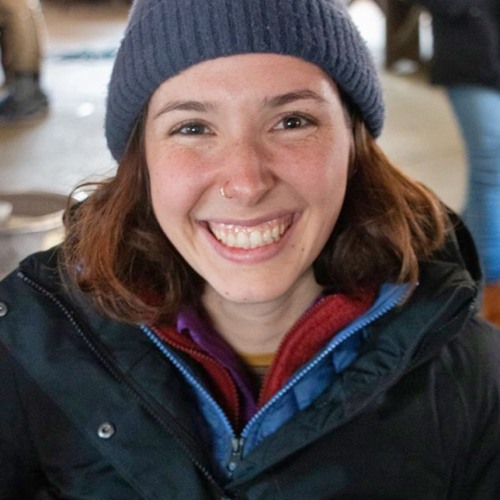
Morgan Y Florsheim '20
ScB Environmental Science – Conservation, Science & Policy trackThesis Advisor Dov SaxHumans have unintentionally facilitated a number of species becoming established outside of their native ranges, a phenomenon termed “unmanaged relocation.” Although typically viewed as a negative anthropogenic impact, this unmanaged relocation could prove vital to species’ ability to shift their ranges in response to climate change. To assess the importance of the relationship between unmanaged relocation and climate, Morgan is collecting dendrochronological data and building climate niche models for a sample group of ten species of trees that are native to the southeastern United States but have naturalized populations north of their native range.
-
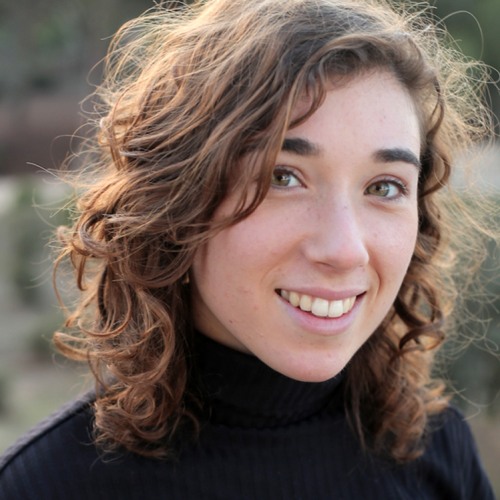
Maya E Greenhill '20
ScB Ecology and Evolutionary BiologyThesis Advisor Jon WitmanMaya is researching how damselfish, a family of territorial fish that cultivate algal gardens, impact primary productivity in the Galapagos Marine Reserve. These territories are algal oases in a community characterized by high grazing pressure and support a suite of higher trophic levels. Her study has demonstrated niche differentiation across damselfish species through resource partitioning, highlighting the importance of a diverse guild of damselfishes for ecosystem functioning in the Galapagos Archipelago.
-
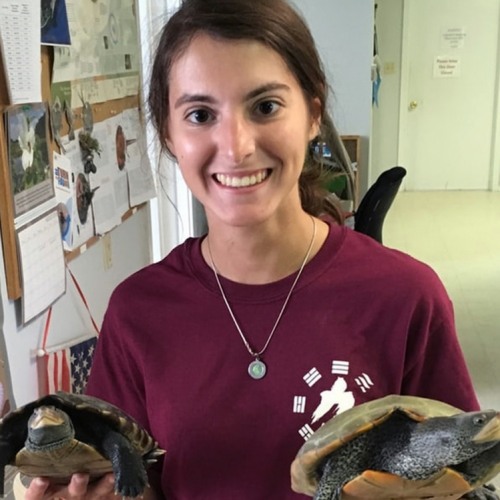
Amanda L Lyons '20
ScB Ecology and Evolutionary BiologyThesis Advisor Tyler KartzinelDue to various anthropogenic factors including shoreline hardening and coastal development, the diamondback terrapin (Malaclemys terrapin) is known to have declined throughout its range, but questions remain as to how diamondback terrapin populations interact across geographic distances and perceived barriers such as urban areas and roads under current levels of habitat fragmentation. Moreover, our knowledge of populations within individual geographic sites is limited due to terrapins’ idiosyncratic life history, as male terrapins do not leave the marsh to nest and must therefore be sampled in the water via trapping, which provides imperfect snapshots of population composition. With the help of the Kartzinel Lab, the Rhode Island Department of Environmental Management, The Wetlands Institute, and several other collaborators, I am attempting to address these gaps in our knowledge by conducting two genetic analyses: an analysis of genetic relatedness among terrapin populations from locations in MA, RI, CT, NY, and NJ, and an indirect quantification of male biodiversity in a putatively stable NJ population. Both parts of this study are unique in that they utilize novel molecular tools which have not yet been applied to diamondback terrapin population genetics and may prove to be broadly applicable across the range of this ecologically important species. The analysis of relatedness will employ restriction site-associated DNA sequencing (RADseq), sampling thousands of loci across the terrapin genome to obtain a robust understanding of variation among and between populations, while the paternity analysis will attempt to quantify the number of unique male genotypes within a population by comparing maternal DNA and offspring DNA sampled noninvasively from eggshells after hatching.
-
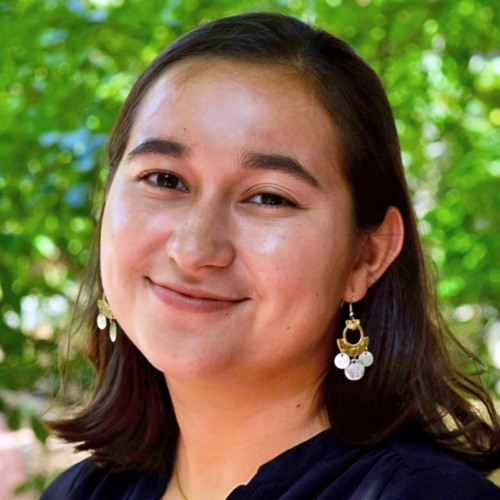
Andrea M Vega Troncoso
AB Environmental Studies - Environmental and Inequality track, Latin American and Caribbean StudiesThesis Advisor Elizabeth LordIn the face of the disproportionate effects of climate change, forming effective frameworks for discussing the vulnerabilities of small island developing states (SIDS) is more pertinent than ever. However, international development organizations have often used overly generic and ahistorical frameworks for understanding vulnerability, which advocate for increased tourism and coastal development as prescriptions for islands’ development. These ‘solutions’ instead exacerbate local experiences of vulnerability, which alternatively emphasize local epistemologies and histories of inequality and exploitation. This research focuses on community experiences across two resort-town destinations in the Dominican Republic: Bayahibe and Punta Cana. It asks: How is “vulnerability” experienced and understood by coastal communities in the eastern Dominican Republic? By employing ethnographic methods, this study reveals nuanced, in-depth perspectives on vulnerability while foregrounding local knowledges. This research is crucial to understanding the intersecting political, economic, and environmental conditions that SIDS face in the 21st century and how they have been reproduced throughout history, in the hopes of opening doors to imagining alternative development futures in SIDS, where patterns of environmental, economic, and socio-political exploitation are mended.
2018-2019 Fellows
-
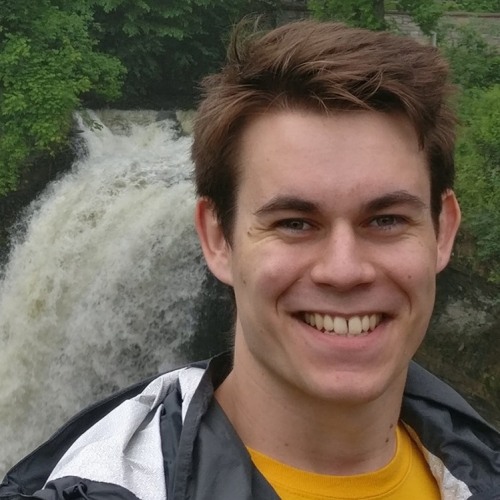
Robert M Blattner '19
Biology ScB (IMMU)Research Mentor David RandThe New England cottontail (Sylvilagus transitionalis) is an imperiled native mammal in decline coincident with the introduction of the Eastern cottontail (S. floridanus). Robert is investigating innate immune gene biogeography in this native-invasive species pair to better understand the demographic history and population viability of these two species. This is the first investigation of innate immune genes in Sylvilagus spp. and will provide insight into anthropogenic invasion dynamics. His work complements further research by Kim Neil and David Rand on parasite-mediated selection in this species pair.
-
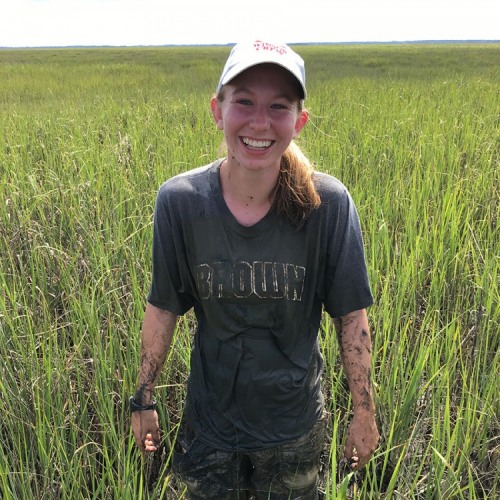
Hallie S Fischman '19
Biology ScB (MAR)Research Mentor Mark BertnessCoastal sand dunes act as a valuable buffer against sea level rise and storm surge. However, dune restoration efforts are notoriously unsuccessful. Hallie is looking at ways to optimize dune restoration through the planting of grasses at different configurations and densities in Georgia and Massachusetts. She discovered the optimum planting strategy to reestablish dunes across a variety of physical conditions.
-
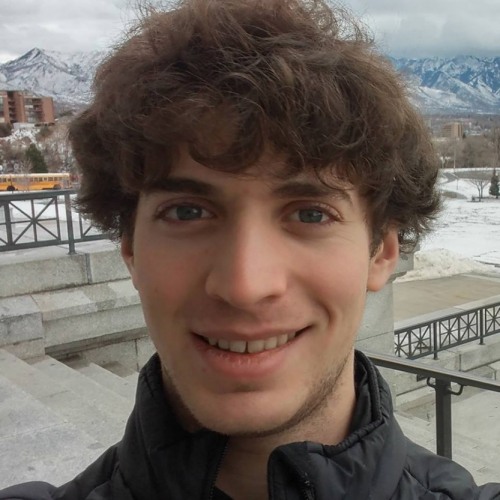
Micah I Jaffe '19
Geology ScBResearch Mentor Tim HerbertMicah's research investigates how growing conditions, such as salinity, acidity, temperature, and nutrient concentration affect the production of alkenones in haptophytes. More specifically, he is conducting experiments to test the hypothesis that growth rate and nutrient variation changes the ratio of certain alkenones, allowing detection of such changes.
-
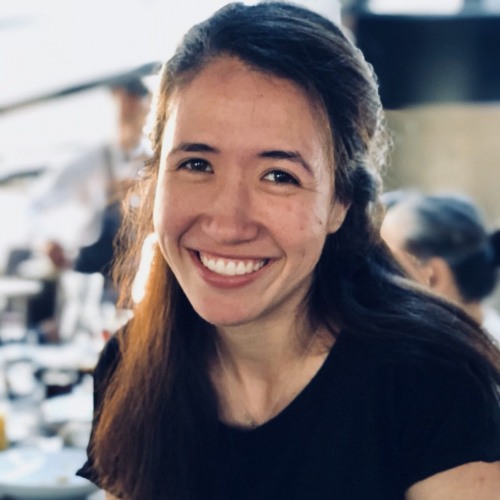
Emmie J Le Roy '19
Geology-Chemistry ScBResearch Mentor Meredith HastingsEmmie is working with Professor Meredith Hastings and Dr. Wendell Walters to better constrain the sources and fate of atmospheric ammonia, a key component of the reactive nitrogen cycle. Ammonia reacts with other anthropogenic emissions to form fine particulate matter, having adverse effects on air quality. Ammonia deposition also contributes to increased nitrogen availability, which can disturb sensitive ecosystems. Her research project investigates how ammonia in the atmosphere is removed by precipitation and seeks to test if the relative amounts of different isotopes of nitrogen measured in rainwater samples are a useful tracer of ammonia emission sources.
-
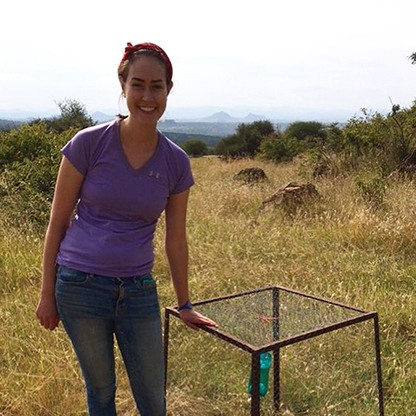
Molly C Magid '19
Biology & Science AB, Science & Technology Studies ABResearch Mentor Tyler KartzinelMolly Magid is interested how species respond to climate change and how genetic analysis can be used to inform conservation. Molly also enjoys finding ways to communicate science to the public that is clear, novel, and engaging. Magid is working with Dr. Tyler Kartzinel to investigate how blowfly communities in Equatorial Guinea respond to habitat disturbance. Molly is also collaborating with the Biodiversity Initiative, a research group focusing on wildlife surveys, ecological studies, and conservation in Equatorial Guinea, and these results will provide crucial information to the Biodiversity Initiative about the native blowfly diversity in tropical forests.
-
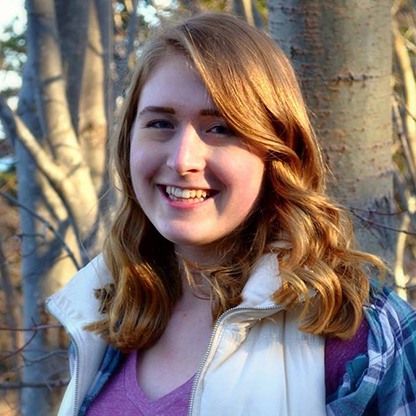
Charlotte J Merzbacher '19
Biomedical Engineering ScBResearch Mentor Ian Y. WongCharlotte Merzbacher is a biomedical engineering student at Brown University with interests in computational biology and biochemistry. Charlotte is working with Professor Ian Wong and Professor Agnes Kane to apply computer vision and tissue engineering approaches to predict nonmaterial toxicity after environmental exposure using 3D spheroid models of lung fibrosis.
2017-2018 Fellows
-
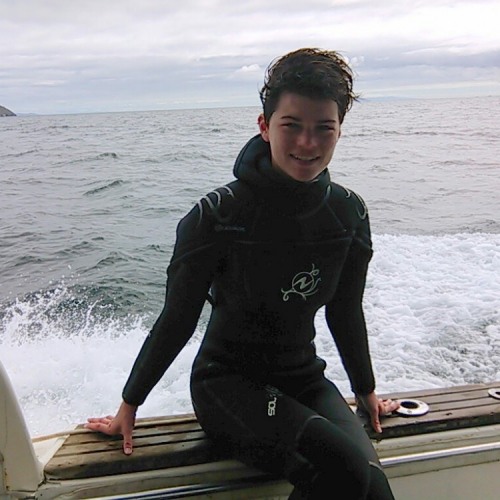
Fiona L. Beltram '18
BiologyResearch Mentor Jon WitmanThe productivity and diversity of reefs in the Galapagos Islands are closely tied to El Niño cycles. Shifts in temperature and nutrient supply associated with this phenomenon can affect biological interactions in the subtidal community, sometimes leading to the introduction of novel species. In 2016, at the peak of the strongest El Niño event since 1997/1998, researchers from the Witman Lab observed a new cyanobacteria at several study sites, forming extensive mats over the reef surface. Beltram’s research investigates the potential introduction mechanisms and ecological effects of this cyanobacteria, especially its palatability for grazers.
-
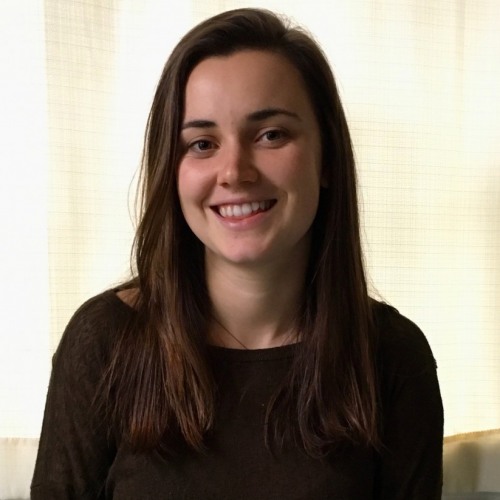
Kelsey M. Fenn '18.5
Environmental ScienceResearch Mentor Stephen PorderFenn is studying the dynamics of plant growth in tropical ecosystems. She is using a greenhouse experiment to study how abiotic and biotic factors help or constrain the ability of legume trees to fix nitrogen. Understanding mechanisms and patterns of nitrogen fixation will help to outline practices for reforestation efforts in the Brazilian Amazon. Reforestation will play a critical role in mitigating climate change.
-
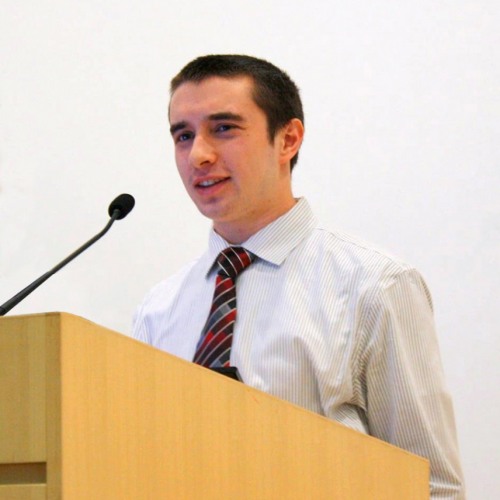
Geoffrey D. Kocks '18
Applied Mathematics, Hispanic StudiesResearch Mentor Andrew FosterKocks is researching the impact of Cuba's growing tourism industry on methods and patterns of local food production, particularly in urban areas. Anecdotal evidence supports competing claims on whether Cuban tourism has encouraged or hindered local food production, and he hopes to match environmental and economic data from the past decade to assess these effects empirically. His research combines two new data sets generated as part of his project: remote sensing data to quantify agricultural land area and food price data collected from private food markets in Havana. His work will help evaluate the full environmental effects of economic growth strategies that focus on tourism.
-
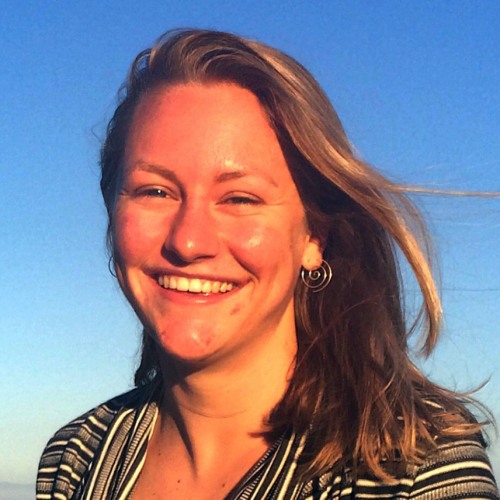
Clare E. Peabody '18
Environmental ScienceResearch Mentor Dov SaxPeabody will use data from the California Cooperative Oceanic Fisheries Investigations (CalCOFI) to investigate range shifts and decadal-scale regime shifts in the assemblage composition of ichthyoplankton in the southern California Current.
-
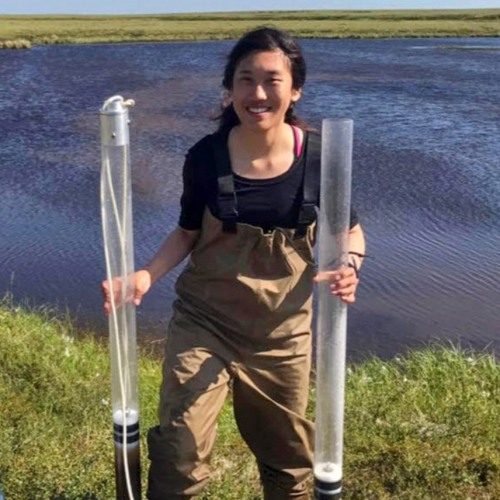
Jarunetr Sae-Lim '18
GeologyResearch Mentor Yongsong HuangWildfire is an important disturbance in Arctic ecosystems and can cause abrupt perturbations in global carbon cycling and atmospheric chemistry. Over the next few decades, arctic fire frequency, intensity and extent are projected to increase due to anthropogenic climate change, as regional air temperatures are increasing at more than twice the global average. In order to be better able to predict the effects of human-caused climate change, it is crucial to study past climatic changes and their effects, using a high resolution proxy. Sae-lim’s project will use charcoal and other past wildfire residues in lake sediment cores from the Alaskan arctic as a proxy to determine the history of natural wildfires in that region because wildfire frequency and extent are likely to correlate with climate changes.
-
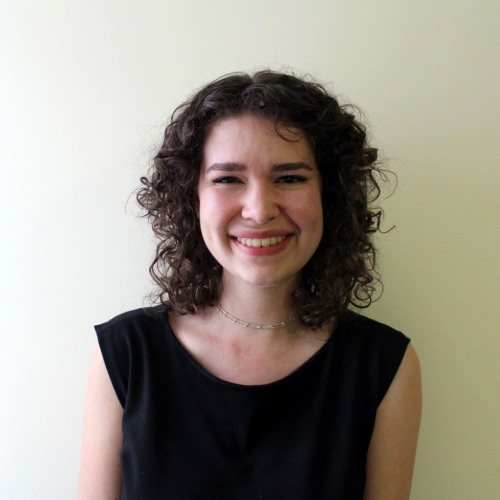
Kaya C. Salem '18
Environmental StudiesResearch Mentor Timmons RobertsOver the past decade, Rhode Island legislators, regulators, and policy makers have embarked on a series of policy initiatives to help the state transition to a modern, low-carbon electrical system. Some of these policy initiatives, like the Comprehensive Energy Conservation, Efficiency, and Affordability Act of 2006, have successfully transformed the way Rhode Island reduces carbon emissions. Others have become bogged down in bureaucracy or haven't produced the results that environmentalists hoped. Salem theorizes the variances in effective implementation correspond to contrasting policy design, stakeholder input processes, and activist action. To test this theory, Salem is conducting research by comparing four different case studies of energy policy in Rhode Island. Salem’s hope is that conclusions drawn from this research will aid local advocates and policymakers in their efforts to transition Rhode Island to a more sustainable, just electricity system.
2016-2017 Fellows
-
Aida Feng '17
ChemistryResearch Mentor Stephen PorderFeng will explore how soil nitrogen availability varies across secondary tropical forest regrowth in the Atlantic forests of Brazil. This summer, she will travel to the state of Bahia, Brazil to collect soil samples from pre-determined forested sites, each in a different stage of regrowth. She will then analyze the nitrogen content of the soil using a process called spectrophotometry. Her work, in combination with that of others in the Porder lab, will help to advance scientists’ current understanding of how nitrogen is cycled through ecosystems over the course of secondary tropical forest regrowth.
-
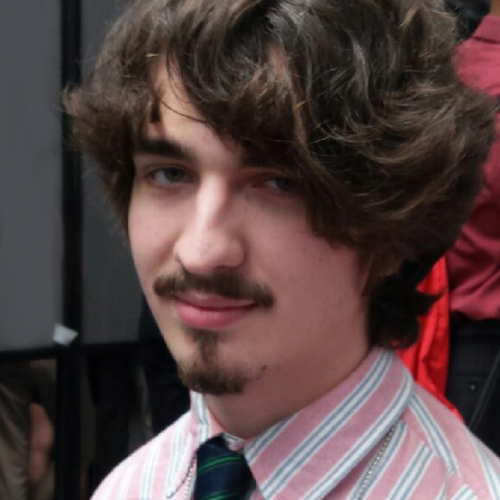
Zachary Garvin '17
Microbiology, ImmunologyResearch Mentor Yongsong HuangGarvin will quantify the rate at which a microbe produces so-called “GDGT lipids”, temperature-indicative organic molecules that are found in geological samples from diverse time periods and environments. This summer, he will isolate GDGTs from diverse soil samples and use stable isotope probing to test whether temperature estimates are accurately representative of the expected time period. Ultimately, knowing the rate at which GDGTs are produced will permit higher-precision paleotemperature estimates by understanding how rapidly the lipids are replaced in the environment.
-
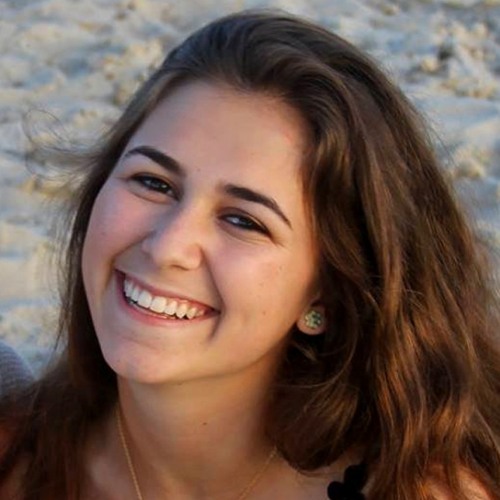
Victoria Hoffmeister '17
Political Science, Environmental StudiesResearch Mentor Timmons RobertsHoffmeister’s research will focus on how the Unites States’ stance on global climate-related loss and damage, or climate change impacts not averted by mitigation or adaptation, has evolved and shaped relevant international environmental policy decisions over the past two years. She will explore her hypothesis using a mixed approach of text analysis and interviews, comparing mentions of loss and damage in each draft decision published preceding and during the last two UN climate conferences (COP20, COP21). Her research will be especially salient in the aftermath of this year’s UN climate conference, as interest in loss and damage is likely to be at an all-time high.
-
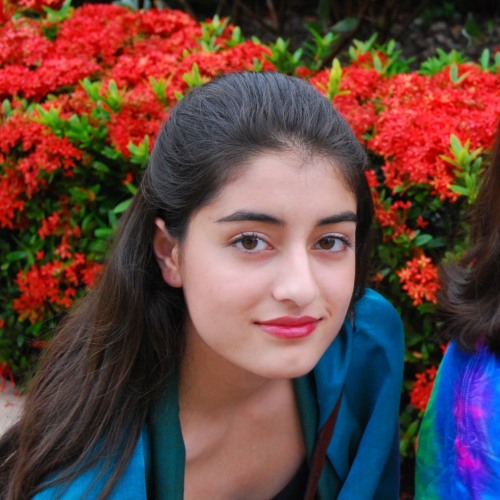
Fatima Husain '17
Geology, ChemistryResearch Mentor Yongsong HuangHusain will perform multiple geochemical analyses of a particular sediment core collected from Fog 2 Lake in Northern Alaska. Her research will contribute to the Huang Lab’s creation of a high-resolution, quantitative record of Alaskan Arctic temperatures since the Last Ice Age. This is of particular interest for two main reasons: 1) the Holocene temperature history for the Alaskan Arctic is unknown, and 2) the region is particularly sensitive to climate forcings and feedbacks, both natural and anthropogenic. A high-resolution record of temperature variability in the region will ultimately help geoscientists to develop a more rigorous understanding of the complex processes that dictate climate conditions throughout the arctic.
-
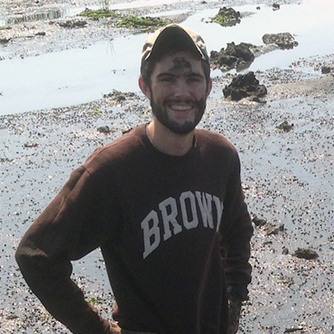
Thomas Pettengill '17
Ecology and Evolutionary BiologyResearch Mentor Mark BertnessPettengill will examine the relationship between spatial patterns of mussel mounds and local fluxes of larvae, food, and nutrients in Southeastern Atlanic salt marshes. His project will focus specifically on mounds created by the abundant species Geukensia demissa, which is found throughout salt marshes in this region. He hopes to understand whether physical processes, such as flow, ultimately predict the distribution and abundance of foundation species like G. demissa. This work will help community ecologists to better understand the deterministic patterns that dictate ecological structure and function, and will enable and inform effective restoration and conservation in the face of increasing human impacts on marine ecosystems.
-

Yesenia Valverde '17.5
Environmental ScienceResearch Mentor Dov SaxYesenia will explore how the elevational distributions of bird species has changed over the past 50 years in the Monteverde region of Costa Rica. By comparing the bird species that have inhabited different areas of Monteverde at different time points, she will be able to examine the occurrence of elevational range shifts over the past half-century. She will work with data collected from previous mist net surveys, which intercept and harmlessly entangle birds mid-flight, and participate in a resurvey to be conducted this year (2016). Locally, her research will affect conservation, tourism, and culture in the region; globally, it will be significant in its ability to help illuminate how tropical montane organisms are responding to climate change.
2015-2016 Fellows
-
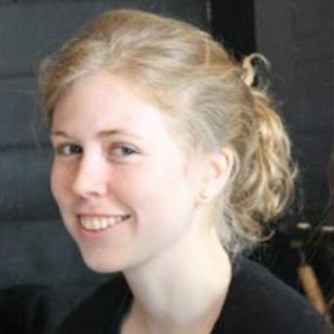
Terese (Tess) Carter '16
Therese (Tess) Carter ’16 is a Chemistry concentrator interested in atmospheric chemistry, green chemistry, and science policy. She will be working with Professor Meredith Hastings (Department of Earth, Environmental and Planetary Sciences) and Dr. Chris Clark (US EPA) to explore the effects of nitrogen deposition on different ecosystems, in particular, on lichens, trees, and herbs. She hopes to both educate citizens about their own effects on the nitrogen cycle and nitrogen’s impacts on humans and to also inform the upcoming federal review of the National Ambient Air Quality Standards (NAAQS) secondary standards for nitrogen. Tess is also a 2015 recipient of the Royce Fellowship.
-
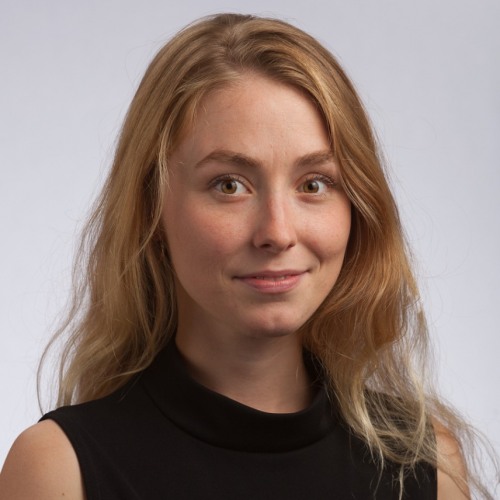
Alexis Durand '16
Alexis Durand ’16 is an Environmental Studies concentrator interested in conceptualizing just and equitable solutions to international climate change policy issues. Alex is working with Professor Timmons Roberts (Environmental Studies and Sociology) to explore international policy approaches to losses and damages from climate change. In particular, she is investigating opportunities for the incorporation of compensation for losses and damages within international climate change policy. Alex hopes her research will inform the development of a loss and damage regime in the future. Alex is from East Tennessee, and enjoys baking and backpacking in her free time.
-
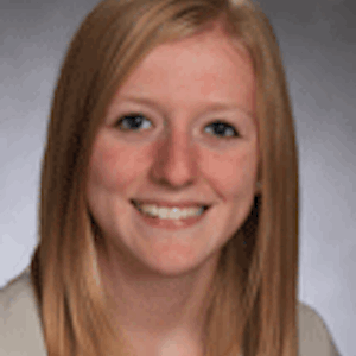
Emmaline Suchland '16
Emmaline Suchland ’16 is a Biology concentrator interested in the effects of climate change on species’ survival, distributions, and risks of extinction, especially in a tropical setting. She is working with Brown PhD student Emily Hollenbeck in collaboration with Professor Dov Sax (Ecology and Evolutionary Biology) to study the influence of climate on several species of epiphytes (plants that live on other plants). This summer she is working in the tropical montane cloud forest of Monteverde, Costa Rica, as well as travelling to several other sites around Costa Rica and Panama. Her project involves climbing trees to survey epiphyte populations in the canopy, measuring physiological traits relating to water-stress tolerance in the lab, analyzing climate data, and collecting records of elevational and geographic ranges using herbarium specimens. Through elucidating how climate affects the distributions and survival of these plants, she hopes to help inform efforts of their conservation. Emma is from Seattle, Washington and is a captain of the track and field team at Brown.
-
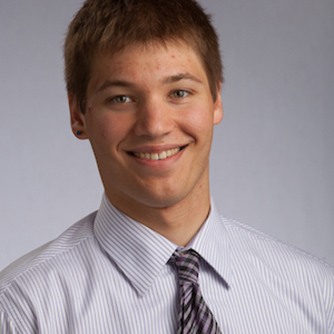
Paul K. Wojtal '16
Paul K. Wojtal ’16 is a Chemistry concentrator from Oberlin, Ohio. He is interested in the intersection of atmospheric and oceanic chemistry and public health. In particular, he is interested in how humans affect the environment, both living organisms and the nonliving portions of ecosystems and how the changing environment affects human health. He is working with Meredith Hastings (Brown University) in the Department of Earth, Environmental, and Planetary Sciences, looking at isotopic differentiation of NOx emissions sources. He will analyze air samples collected across Rhode Island to measure the relative amounts of different isotopes of nitrogen, with the aim to determine the contributions of natural and anthropogenic sources of nitrous oxides. He hopes that this will influence future policies about nitrogen emissions. At Brown University, he is a member of emPOWER, Brown RISD Hillel, a band named North of Home, and is training for a triathlon and a half-marathon.
2014-2015 Fellows
-
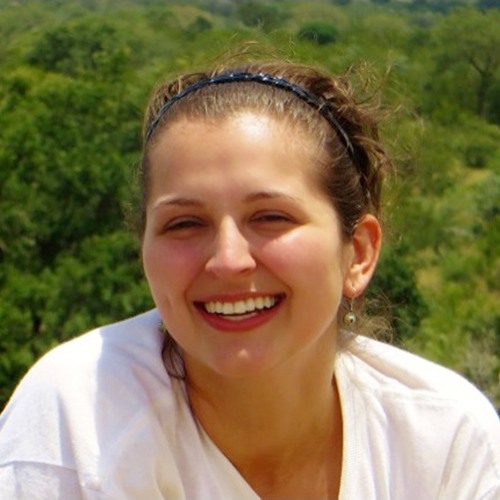
Alyssa L. Browning '15
Alyssa L. Browning ’15 is a dual concentrator in Environmental Science and Religious Studies interested in the intersection between humans and nature. She has recently returned from South Africa where she spent the spring semester studying savanna ecology and conservation. Alyssa hopes to build a career conducting applied research within the paradigm of strategic adaptive management and community-based conservation. This summer, Alyssa is working in conjunction with Christopher Neill (Brown University EEB, Marine Biological Lab) and Matthew Pelikan (The Nature Conservancy) to evaluate the efficacy of homeowner implemented land restoration on Martha’s Vineyard, MA. Their evaluation of vegetation structure as well as butterfly and bee abundance and diversity will help inform conservation strategies taken to improve habitat connectivity on the island.
-
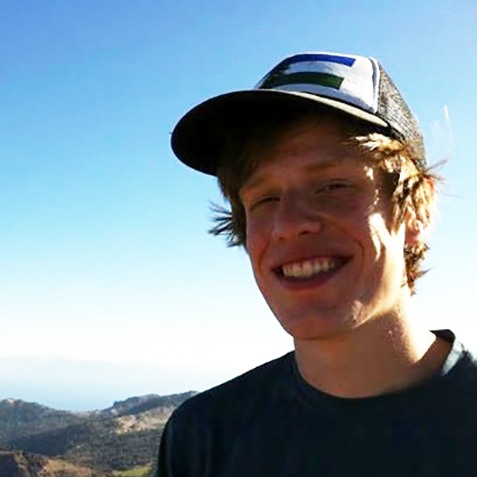
Steven Hagerty '15
Steven Hagerty ’15 is an Environmental Science and Economics concentrator interested in conservation biology, environmental policy and management of natural resources. He is working with Professor Mark Bertness (Ecology & Evolutionary Biology) and Stephen Smith (Cape Cod National Seashore/National Park Service) to analyze how recreational overfishing ultimately affects small marine invertebrates that live in coastal Cape Cod. This research should help more clearly identify the structure of New England salt marsh food webs, the complete effects of human activity in coastal ecosystems as well as general implications for trophic cascades. Steve leads trips for Brown Outdoor Leadership Training and volunteers for Space in Prison for the Arts and Creative Expression. He enjoys backpacking and poetry.
-
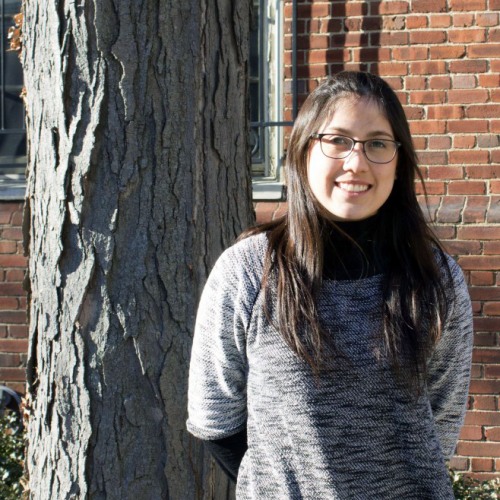
Ada Cecila Bersoza Hernández ’15
Ada Cecilia Bersoza Hernández ’15 is a Biology concentrator from Monterrey, Mexico interested in ecology. She will be working with Professor Dov Sax (Ecology and Evolutionary Biology) and Dr. Qinfeng Guo (USDA Forest Service) to explore the extent to which climate conditions limit species high-latitude or high-elevation boundaries. She will compare temperatures experienced by woody plant species across North America at their highest latitude and altitude to help inform the extent to which climate per se (as opposed to other factors) limits species distributions. This analysis will provide insights that will be used to help develop conservation approaches in the context of climate change. Ada also is a 2014 Henry D. Sharpe, Jr. ’45 UTRA awardee and co-funded by the University’s UTRA (Undergraduate Teaching and Research Awards) program.
-
Allie Reilly '15
Allie Reilly ‘15 is an Environmental Studies concentrator most interested in reconciling human society and the environment through policy. As a New Jersey resident, she is using her personal curiosities sparked by her family’s own experience with Hurricane Sandy to fuel her research. In collaboration with Caroline Karp (Environmental Studies) and Amanda Martin (RI Statewide Planning Program), she will be researching whether Hurricane Sandy had any impacts on coastal management policies in the Northeast. The research process will include legal examination of municipal ordinances, followed by a survey of and interviews with local government officials to understand how they respond to events like Hurricane Sandy. This work hopes to inform coastal management practices, and highlight policies that are adaptive in light of climate change and its subsequent impacts on the coast. Allie also is a 2014 Henry D. Sharpe, Jr. ’45 UTRA awardee and co-funded by the University’s UTRA (Undergraduate Teaching and Research Awards) program.
-
Elena Suglia '15
Elena Suglia ’15 is a Biology concentrator interested in ecology, conservation, and science communication. She is working with Professor Mark Bertness (Ecology & Evolutionary Biology) to determine the effects of sea level rise on salt marshes in New England. Salt marshes provide many ecosystem services but are becoming increasingly degraded by human impacts; therefore, their preservation is an important issue. Elena’s research will help inform conservation and management of coastal ecosystems in a warming world. Elena is from Rhode Island, and enjoys sailing, skiing, and kayaking. At Brown, she is a rugby player, Science Policy director of student-led science magazine The Triple Helix, and an undergraduate teaching assistant.
2013-2014 Fellows
-
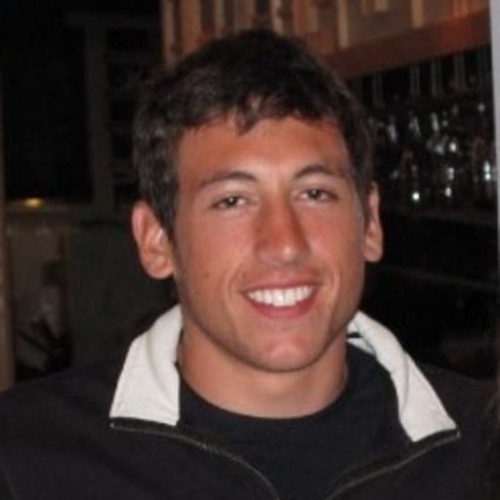
Matthew Bevil '14
Matthew Bevil '14 is a marine biology concentrator interested in the processes that generate and maintain coastal ecosystems. He is working on a joint Voss project with fellow undergraduate Sinead Crotty in collaboration with Professor Mark Bertness (Ecology & Evolutionary Biology) and Dr. Kenny Raposa (Narragansett Bay Estuarine Research Reserve). The group will assess the recent spread of salt marsh die-off into Narragansett Bay. Creek bank die-off has been documented in Cape Cod marshes, but only recently arrived in Rhode Island. The team will investigate how patterns of die-off relate to shoreline development, recreational fishing, and other human and environmental factors. Through this project, they hope to inform future coastal conservation and management. Matthew is from Mary Esther, FL and is on the Track & Field Team at Brown. In his spare time, he enjoys kayaking, swimming, and volleyball.
-
Erin Capra '14
Erin Capra '14 is a Biology concentrator interested in conservation biology. She is working with Professor Dov Sax (Ecology and Evolutionary Biology) and Nancy Green (US Fish and Wildlife Service) to assess the risk that climate change may pose to endangered plants. She will investigate whether areas beyond the native ranges of these endangered plants could be suitable for relocation of at risk species. Erin is a member of Brown’s women’s Ultimate team and the Meiklejohn peer advising program. She loves lakes, playing board games, being outside, and reading.
-
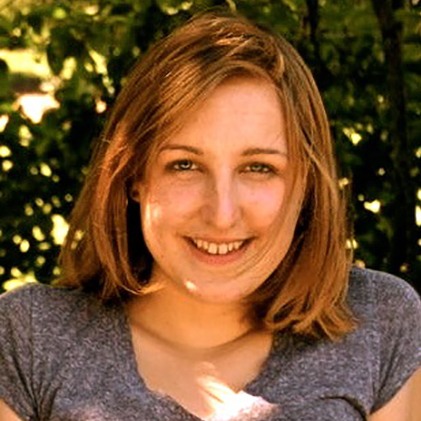
Elizabeth Castner '14
Elizabeth Castner '14 is an Environmental Science concentrator interested in ecology and sustainable agriculture. Together with Voss postdoctoral associate Rebecca Ryals and Professor Meredith Hastings (Geological Sciences) and Mark Dubin (Chesapeake Bay Program), she is investigating how agricultural practices in the Chesapeake Bay watershed influence how nutrient cycling and nitrogen emissions at a landscape scale. By collaborating with the Chesapeake Bay Program, Elizabeth hopes to contribute to scientific understanding of human-environment dynamics in the Chesapeake watershed, and what implications they have for policy. Elizabeth plays the flute in the Brown Band and enjoys learning to play new instruments, cycling, and gardens.
-

Karen Cortes '14
Karen Cortes '14 is a Marine Biology concentrator interested in marine conservation science and policy. She is working with Professor Heather Leslie (Ecology & Evolutionary Biology/Environmental Studies) to apply the Ocean Health Index to Narragansett Bay. The Ocean Health Index framework provides an integrative measure of ocean health, based on a range of benefits provided to people by coastal and marine ecosystems, including food provision, carbon storage, coastal protection, and clean waters. Karen’s particular interest is in clean water and how changes in water quality influence the provision of a wide array of benefits provided to people by estuarine environments like Narragansett Bay. By downscaling the ocean health framework to the Bay, Karen hopes to contribute knowledge relevant to the Rhode Island Department of Environmental Management, The Nature Conservancy and other governmental and non-governmental institutions engaged in marine management and conservation.
-
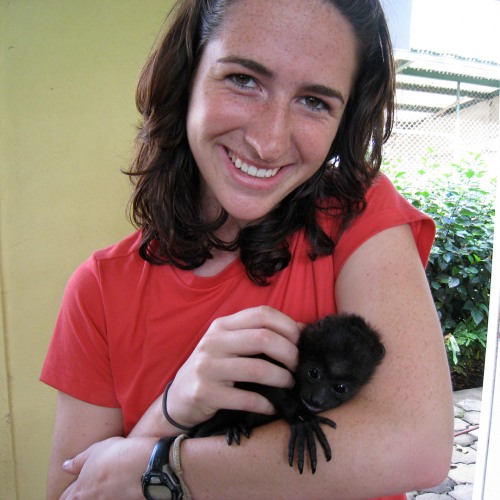
Sinead Crotty '14
Sinead Crotty '14 is a Biology concentrator, with a focus in Ecology & Evolutionary Biology. Together with fellow undergraduate Matthew Bevil, Professor Mark Bertness (Ecology & Evolutionary Biology) and Dr. Kenny Raposa (Narragansett Bay Estuarine Research Reserve), Sinead will investigate how patterns of salt marsh die-off relate to shoreline development, recreational fishing, and other human and environmental factors. Creek bank die-off has been documented in Cape Cod marshes, but only recently arrived in Rhode Island. Through this project, they hope to inform future coastal conservation and management. This will be Sinead’s first field research opportunity in Ecology, and builds on earlier GIS work she has done, also with Prof. Bertness, on the invasion of Phragmites australis into Narragansett Bay marshes. She is a Meiklejohn Peer Advisor and a Biology undergraduate teaching assistant.
-
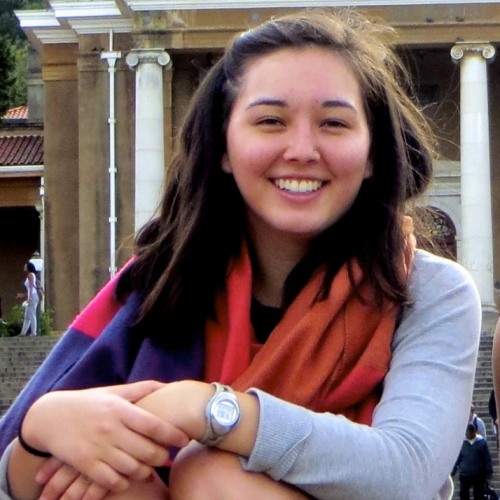
Arisa Lohmeier '14
Arisa Lohmeier '14 is an Environmental Science concentrator interested in botany and reconciling development and conservation goals. Together with Professor Erika Edwards (Ecology and Evolutionary Biology), Voss postdoctoral associate Radika Bhaskar, and Francisco Mora (Universidad Nacional Autónoma de México), Arisa plans to investigate tropical dry forest regeneration in abandoned pastureland in Jalisco, Mexico. Arisa’s ultimate goal is to understand how management can facilitate forest regeneration, and in turn contribute to sustainable land use practices. Arisa is from Rhode Island, and was the sustainability coordinator for A Better World by Design 2012. She also was a coordinator for the Brown Market Shares Program.
-
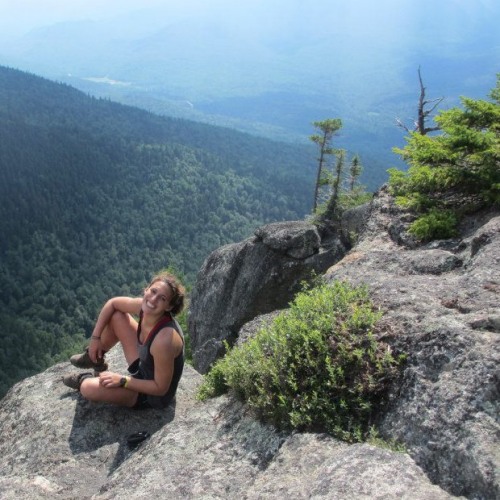
Rebekah Stein '14
Rebekah Stein '14 is a Geology-Biology concentrator Together with fellow undergraduate Conor Sullivan and Professor Stephen Porder (Ecology and Evolutionary Biology), Rebekah will examine the variations of nutrient uptake efficiency of three species of trees over a topographic gradient in Puerto Rico. Rebekah will have just returned from exploring the geology and biology of New Zealand, having spent a semester at University of Otago in Dunedin. She enjoys running, hiking (her favorite spot being New Hampshire’s White Mountains), biking, and just being outdoors.
-
Conor Sullivan '14
Conor Sullivan '14 is a Geology-Biology concentrator interested in how geologic processes influence the functioning of ecosystems. Conor is working with fellow undergraduate Rebekah Stein and Professor Stephen Porder (Ecology and Evolutionary Biology) to explore how geologic factors influence landscape-scale variation in nutrient limitation in the Luquillo Mountains of Puerto Rico. Using the results of a nutrient limitation experiment conducted in Fall 2012 by the Porder Lab, Conor will investigate how the availability of key nutrients limits plant growth, and whether this limitation varies on a landscape scale with topography and soil parent material. Conor is from San Jose, California, and is a Brown Outdoor Leadership Training (BOLT) mentor. He enjoys rock climbing and backpacking.
2012-2013 Fellows
-
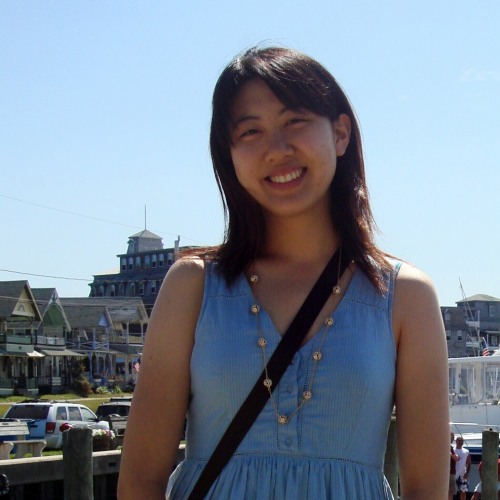
Natividad Chen '13
Natividad Chen '13 has been fascinated by the ocean since scooping up zooplankton during a sixth grade field trip to Bamfield Marine Station in British Columbia, Canada. At Brown, she is a concentrator in marine biology. This summer, she worked with Professor Mark Bertness and EEB graduate student Lauren Szathmary to examine how climate change impacts salt marshes. Salt pans are bare areas within marshes, and their expansion reduces the marshes’ ability to generate essential ecosystem services. Her project involved shading treatments to test whether solar stress drive salt pan formation. She also helped with Lauren’s research which investigated whether drought and elevated temperatures cause pan development. Even though the results from the shading experiments were inconclusive, rain-out and greenhouse manipulations seem to show that the amount of rain and temperature level are key climate variables that affect pan growth. The experiment data has all been collected, but the data still needs to be analyzed for statistical significance. Natividad is from beautiful Vancouver, Canada and loves to draw critters and creatures in her spare time.
-
Emma Dixon '13
Emma Dixon '13 is an environmental science concentrator interested in human-managed and urban ecosystems. In collaboration with Chris Neill (Marine Biological Lab) she is studying the effects of urban development on plant communities. Over the summer and fall of 2012 she conducted surveys in residential yards and unmanaged reference sites in the Boston area to compare site-level plant biodiversity to intensity of urbanization. She also conducted interviews with homeowners about use and management of their yards. Throughout this process she learned just how complicated plants and people can be, but she can now identify lawn grasses without flowers. She is now working with Erika Edwards (Brown) to compare the phylogenetic diversity and degree of urban development in the sites surveyed. This will shed some light on how plant communities might change with urban intensification in the Boston region, an inevitable consequence of increasing population.
-
Hannah Miles '13
Hannah Miles '13 is an environmental studies concentrator from Brooklyn interested in forest conservation policy and environmental education. She is working with Caroline Karp (Environmental Studies) and Lisa Primiano (RI Department of Environmental Management) to investigate different methods of forest conservation in Rhode Island and to help shape a cohesive strategy for RIDEM’s land acquisitions. Hannah recently returned from studying rainforest management in Queensland, Australia. She is a community fellow for the elementary literacy Swearer Classroom Program and plays for Brown’s women’s rugby team.
-
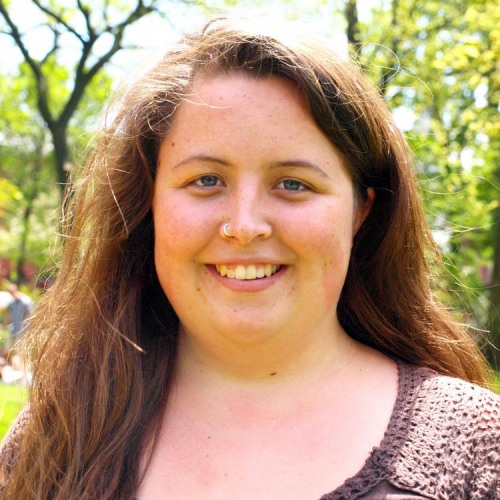
Becca Rast '13
Becca Rast '13 is an Environmental Studies and Africana Studies concentrator interested in the impact of natural resource extraction on communities, and particularly on farmers. In collaboration with Profs. Stephanie Malin and Kathy DeMaster she investigated the impact of unconventional gas drilling on farmers in Pennsylvania. In particular, she explored why different farmers have leased their lands and farmers reactions to the swift expansion of drilling. She is spending this year writing her thesis regarding the ways in which drilling is changing agriculture — in particular how the economic benefits of leasing land is impacting farmers. Rast hails from Pennsylvania, so this project hit close to home and she enjoyed spending the summer meeting many amazing farmers and hearing their stories. Through her summer experience she was able to learn more about the complexity of drilling in PA and think critically about the swift changes to these rural communities. She is active with the Brown Student Labor Alliance, the Environmental Justice League of RI, and other community organizations in Providence. She also loves farming, old-time music, and bonfires.
-
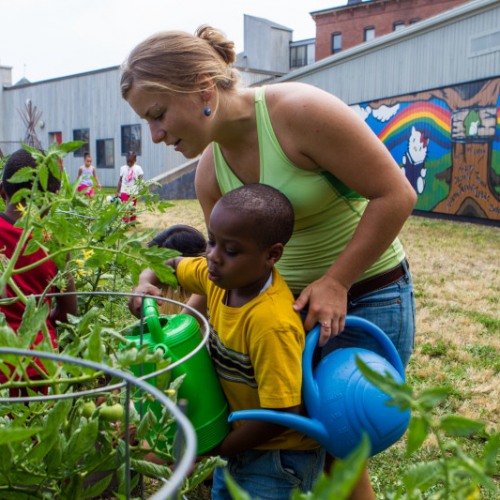
Mary Alice Reilly '13
Mary Alice Reilly '13 is an Environmental Studies concentrator interested in sustainable agriculture and regional food systems. In collaboration with Professor Kathryn DeMaster and partners at John Hope Settlement House (JHSH), Mary Alice is using her hands-on experience as John Hope’s school garden manager and garden educator to inform her research on urban agriculture (UA) and food justice (FJ). What are the intersections of UA and FJ, particularly in the U.S.? And how can various forms of UA contribute to realizing FJ at John Hope? Given the content of numerous surveys and interviews conducted this summer, Mary Alice and JHSH community members both recognize the untapped potential for UA- beyond the school gardens- to impact the broader JHSH community. As such, Mary Alice shifted her focus to identifying the potential opportunities and challenges for establishing other forms of UA at JHSH, particularly the remediation and development of an adjacent brownfield site into additional food production space. Recommendations for UA development and planning at JHSH may contribute important insights to grassroots organizing, community development and/or policy for leading UA, FJ and policy organizations that influence the regional and national food system.
-
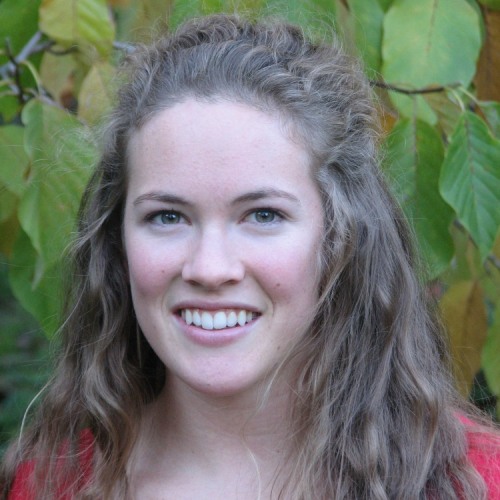
Elizabeth Ryan '13
Elizabeth Ryan '13 is an Environmental Science and Architectural Studies concentrator interested in conservation biology and ecology. She is working with Professor Dov Sax (EEB/ES) and Michael Dosmann (Harvard University’s Arnold Arboretum) to better understand how plant species ranges will respond to climate change. This past summer, she looked for seedlings of North American exotics at botanical gardens across the east coast to broaden existing knowledge of where certain plants can reproduce. In addition to the Arnold, Elizabeth conducted field work in Pennsylvania at the Tyler Arboretum and Bartram’s Garden, and in New York at the Cary Institute. This reproduction information, when matched with climatic data, will be used to pinpoint certain species traits that can guide predictions of where plants will be able to survive in the future. The aim of this investigation is to help determine which species are appropriate for “managed relocation”, a strategy in which human’s move plants that might not be able to move themselves. The constant guidance of the Arnold Arboretum”s Living Collections curator, Michael Dosmann, was invaluable when navigating the world of public horticulture. Equally helpful were the plant identification skills, and stories about the Arboretum’s trees, that he passed along to Elizabeth. Elizabeth is on the Cross Country and Track & Field teams at Brown. A native of the Northeast, she enjoys triathlons, pick-up soccer, skiing, catching insects, and herding sheep and goats.
-
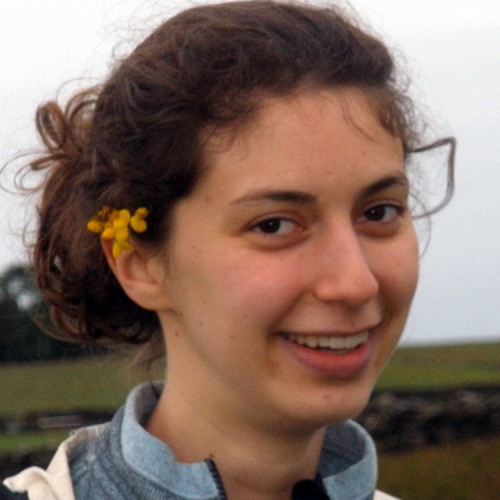
Katherine Siegel '13
Katherine Siegel '13 is an environmental science concentrator interested in conservation biology and environmental policy. She is working with Professor Heather Leslie (Ecology & Evolutionary Biology/Environmental Studies), Dr. Leila Sievanen (Environmental Studies), and Dr. Sheila Walsh (The Nature Conservancy) to analyze the relationship between national regulations and species ecology in small-scale fisheries in Mexico’s Gulf of California. She will compare management practices at the federal and local levels with species’ life histories with the goal of developing proposals to increase the sustainability of the region’s ecologically and economically vital fisheries. She is a peer advisor in the Center for Environmental Studies and volunteers with the Brown Refugee Youth Tutoring and Enrichment Program.
2011-2012 Fellows
-
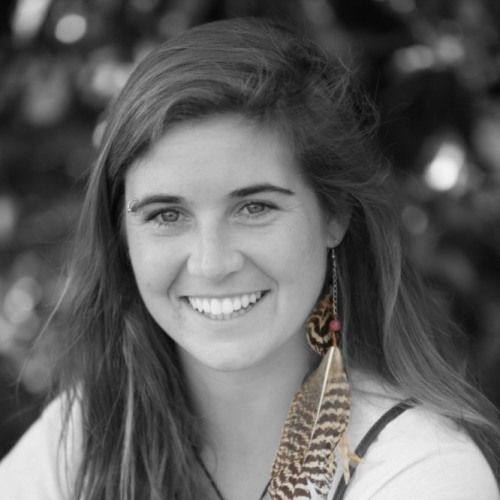
Bridgette Black '12
Bridgette Black '12 is an environmental science concentrator with interests in aquatic ecosystems, climate change, and international environmental policy. She is working with Professor Heather Leslie (Ecology & Evolutionary Biology/Environmental Studies), investigating the linkages between ecosystem health and human well-being in Narragansett Bay. She will link indicators of water quality with others related to ecosystem health, in order to explore how waste management and other water quality-related interventions influence the benefits provided by the Bay ecosystems. Bridgette is on the Cross-Country and Track & Field Team at Brown. She also enjoys swimming, sailing, and dancing in her spare time.
-
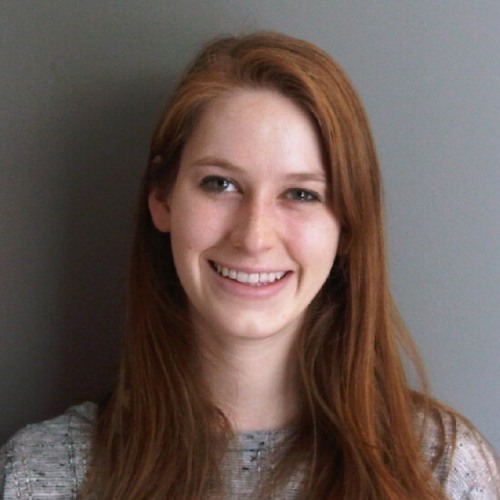
Veronica Clarkson '12
Veronica Clarkson '12 is an Economics and Environmental Studies concentrator interested in environmental health and food sovereignty. She is working with Professor Kathryn De Master (Environmental Studies) on developing a series of economic indicators to determine the viability of heritage-based agricultural clusters in promoting resilient rural development in the United States. In the face of climate change and other environmental pressures, resilient working agricultural systems will be vital. Veronica is particularly interested in the potential positive economic spillovers associated with the production of distinctive regional products, and her research will identify viable heritage-based clusters in the US and the factors that contribute to their success. She hails from Chicago, loves running along the water, and hopes to sleep outside on every continent.
-

Morgan Ivens-Duran '12
Morgan Ivens-Duran '12 is a senior concentrating in Marine Biology, and is interested in anthropogenic impacts on marine coastal ecology. She is currently working on a senior honors thesis with Professor Leslie (EEB/ES) and Brown-MBL EEB graduate student Sarah Corman. She is studying the phenology of Spartina alterniflora, a foundation species in salt marshes along the East Coast. Sub-habitats within a salt marsh are characterized by different ecomorphs of S. alterniflora, which are a phenotypic indicator of the environmental conditions experienced by those plants. Her research considers the impact of tidal inundation frequency, which affects soil temperature and salinity, on the timing of S. alterniflora flowering by transplanting between and within different ecomorphs. Her research will enhance our understanding of the S. alterniflora growth cycle, which has implications for the ability of salt marshes to persist in the face of climate change. She is one of the two leaders of the Marine Biology Department Undergraduate Group at Brown, and is originally from Los Angeles, CA. She enjoys reading, cooking, and visiting aquariums in her spare time.
-
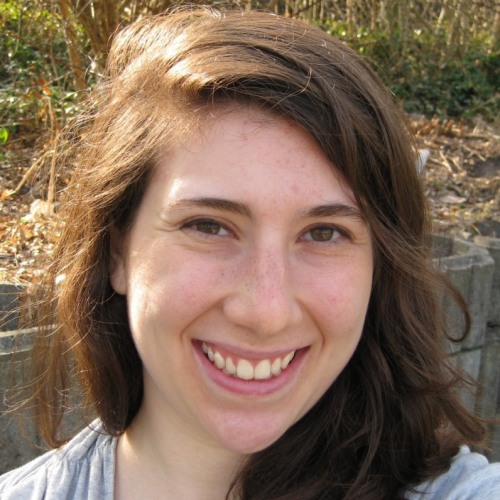
Kara Kaufman '12
Kara Kaufman '12 is an environmental studies concentrator with interests in sustainability, climate change, and translating scientific knowledge to the policy arena. In Spring 2011 she studied abroad in Copenhagen, Denmark to better understand sustainability and producer responsibility from a European perspective. This year, she is working with Professor Chris Bull (Engineering) and the nonprofit agency Clean Water Action to research the ways in which Rhode Island can most effectively encourage manufacturers to take back their products at the end of their use. She has spent a summer bicycling throughout Massachusetts to build the New England climate movement, and is an active member of the Rhode Island Student Climate Coalition. She also is an editor of the Catalyst, an interdisciplinary on-campus science, art, and literary magazine. Kara grew up in Chevy Chase, MD, and in her spare time enjoys going for long runs, dancing, and unplugging everything in her dorm room.
-
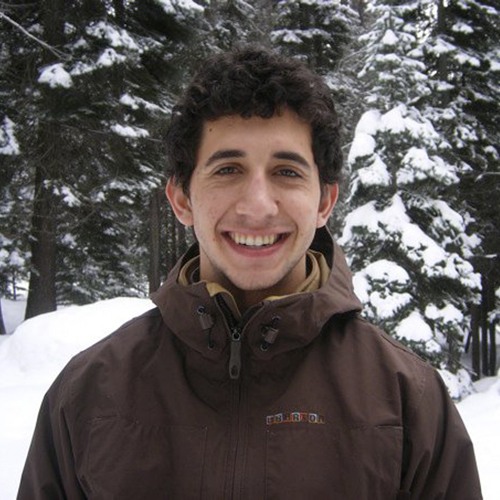
Shae Selix '12
Shae Selix '12 is an environmental science concentrator with interests in natural resource management and climate change. He is currently working with Professor Meredith Hastings (Geological Sciences) and Barbara Morin (Office of Air Resources, RI Department of Environmental Management) to examine the extent of various air pollutants along the major freeways in Providence. They hope to inform governmental agencies and local environmental groups about the health and environmental justice implications of transportation-related air pollution. Shae is involved in the Outdoor Leadership and Environmental Education Program, a partnership between the Swearer Center and the Met High School, as well as Watermyn Coop. Off campus, Shae enjoys returning to the warm weather of his home in California where he likes to ski, hike, and go to the beach.
-
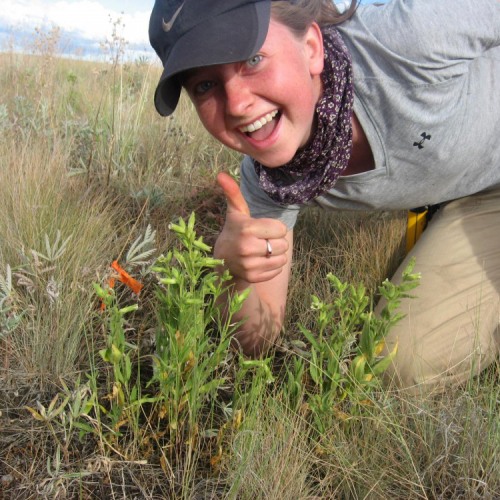
Carmen Tubbesing '12
Carmen Tubbesing '12 is a senior human biology concentrator interested in terrestrial nutrient cycling and land use change. She is working with Stephen Porder (EEB, Ecology & Evolutionary Biology/ECI) and EEB graduate student Shelby Riskin on the effects of intensive soy agriculture on soil nutrients in Brazil. Her analyses will help determine to what degree growing soy may alter nutrient balances in the Amazon. Carmen is from Washington State and loves to run, dance, and be outside.
-
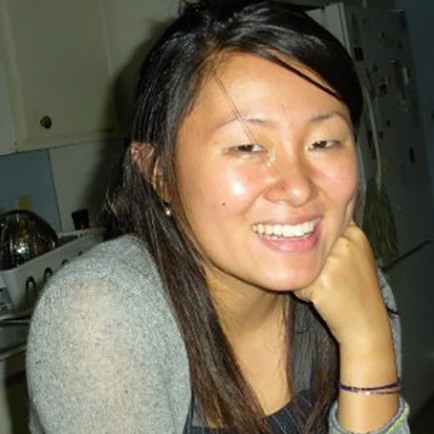
Stephanie Yin '12
Stephanie Yin '12 is an environmental science concentrator interested in marine ecology and geology. Having grown up in suburban New Jersey, it wasn’t until she spent a summer in Indonesia after her freshman year that she discovered her love for marine ecosystems. In collaboration with Prof. Mark Bertness (Ecology & Evolutionary Biology), Steph is quantifying changes in the functioning and services provided by salt marshes as a result of creek bank die-off. Creek bank die-off has been occurring in Cape Cod salt marshes over the past three decades, but little is known about the effects on the many services these coastal ecosystems provide. Her research compares healthy and die-off marshes in Cape Cod to assess differences in ecosystem services (particularly nutrient assimilation and carbon storage) caused by die-off. Steph drums in Brown’s Japanese drumming troupe, Gendo Taiko, and volunteers with the Brown Refugee Youth Training and Enrichment program. In her spare time, she enjoys collecting seahorse paraphernalia, reading comic books, baking pies, and playing the banjo.
2010-2011 Fellows
-
Devon Cupery
Project Narragansett Bay Eutrophication: Understanding the Bay’s History of Primary Production through Sediment Core AnalysisResearch Mentors Warren Prell and Tim Herbert, Professors, Geological SciencesOff-Campus Research Mentor Chris Deacutis, Narragansett Bay Estuarine Program -
Michelle Flagg
Project Sustainable Rehabilitation as Historic Preservation: An Analysis and Redesign of the Herreshoff Marine MuseumResearch Mentor Christopher Bull, Senior Research Engineer/Senior Lecturer, EngineeringOff-Campus Research Mentor David Ford, Herreshoff Marine Museum -
Barbara Santisteban
Project Charting a New Course: Mapping Knowledge and Attitudes toward Competitor or Nuisance Marine Species under Different Fisheries Management RegimesResearch Mentor Caroline Karp, Senior Lecturer, Environmental StudiesOff-Campus Research Mentors Robert Ballou, RI Department of Environmental Management Marine Fisheries and Margaret Petruny-Parker, Commercial Fisheries Research Foundation -
Caroline Scanlan
Project The Science and Policy of Nitrogen Management in Narragansett BayResearch Mentor Jeremy Rich, Asst. Professor, Environmental Studies/Ecology and Evolutionary BiologyOff-Campus Research Mentor Tom Uva, Narragansett Bay Commission -
Ariana Spawn
Project Developing Strategies for Effective Implementation of Managed RelocationResearch Mentor Dov Sax, Asst. Professor, Environmental Studies/Ecology and Evolutionary BiologyOff-Campus Research Mentor Nancy Green, US Fish and Wildlife Service -
Cecilia Springer
Project Regulation of Potentially Toxic Chemicals: Keeping Pace with a Changing LandscapeResearch Mentor Kim Boekelheide, Professor Bio Med Pathology & Laboratory MedicineOff-Campus Research Mentor Robert Vanderslice, RI Department of Health -
Eric Van Arsdale
Project Cape Cod Salt Marsh Die-offResearch Mentor Mark Bertness, Professor, Ecology and Evolutionary BiologyOff-Campus Research Mentors Steve Smith, Cape Cod National Seashore and Bob Prescott, Massachusetts Audubon Society